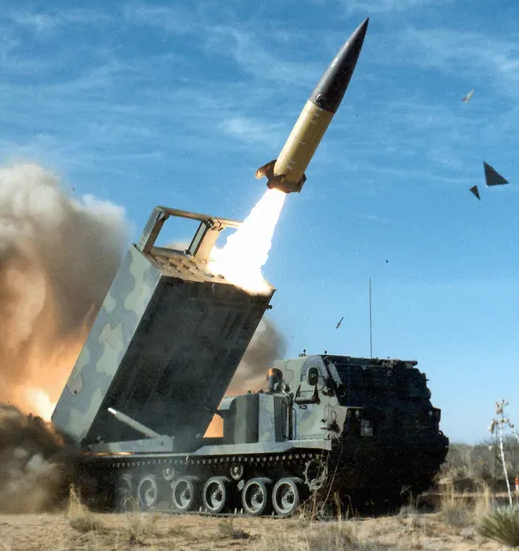Really interesting and quite easy to read article. In fact, the french energy policy is to invest in new “little” nuclear plants. I’m not sure our politics will consider these scientifical comments…
They still seem to handwave away the issue of baseload, which is entirely frustrating. As I seem to understand it, it’s just a 1:1 comparison of costs.
They use nebulous phrases like “Flexibility is more important” and point to batteries or energy saving methods getting cheaper, without actually including it in the comparison.
Although if it’s true EU plants were randomly closed from production 50% of the time baseload doesn’t really make a difference I guess.
“Baseload generator” isn’t a useful concept. And grid reliability (which is a useful concept) is thought about. It just doesn’t fit into a soundbite like winddon’tblowsundon’tshine.
Here’s an example of a full plan https://aemo.com.au/en/energy-systems/major-publications/integrated-system-plan-isp/2022-integrated-system-plan-isp
Or a simpler analysis on the same grid: https://reneweconomy.com.au/a-near-100pct-renewable-grid-for-australia-is-feasible-and-affordable-with-just-a-few-hours-of-storage/
For reference, 5kWh home batteries currently retail for about $1300 so this would add <10% to the capital cost compared to recent nuclear projects. Pumped hydro is about half the price per capacity, but a bit more per watt. The former is dropping at 10-30% per year, so by the time a nuclear plant is finished, storage cost would be negligible.
Here’s a broad overview of a slightly simplified model https://www.nature.com/articles/s41467-021-26355-z demonstrating similar is possible everywhere.
Even in the counterfactual case where the ~5% of “other” generation is only possible with fossil fuel, focusing on it is incredibly myopic because the resources spent on that 1% of global emissions could instead be used for the other 70% which isn’t from electricity and has different reliability constraints.
Doesn’t the Australian model ask for a 4-6% fossil or other fuel input? I don’t see how base load, nuclear or other fuels aren’t relevant to discuss, as nucleur is like 4% of global output right now.
Four points:
The profile of other is short spikes 5-100 hours a few times a year.
1 year of delay is equivalent to 20 years of exclusively using fossil fuels for “other”.
It’s not even obvious that adding nuclear reactors would reduce this because they’re so geographically and temporally inflexible. France has 63GW of nuclear capacity, <45GW of average load and 61GW of winter peak load with vast amounts of storage available via interconnect to hydro countries. They still use 5% gas on top of the rest of the “other” (which is about 10-25GW).
5% of other from gas adds about 20g CO2e/kg per kWh to the total. Less than the margin between different uranium sources.
Running 40% of the capacity 10% of the time puts your nuclear energy in the realm of $1-3/kWh. The list of ways of generating or storing 6% of your energy for <$1/kWh is basically endless.
That’s about 4-8TW of capacity worldwide. 1kg of uranium is good for fuelling about 750W of reactor on a 6 year fuel cycle. Loading those reactors would require digging up all of the known and assumed-to-exist uranium immediately.
Nuclear is an irrelevant distraction being pushed by those who know it will not work. You only have to glance at the policy history or donor base of the politicians pushing for it in Sweden, Canada, Australia, UK, Poland, etc etc or the media channels pushing it to see how obvious it is that it’s fossil fuel propaganda.
It is obviously obviously true that it’s a non-solution. It fails on every single metric. All of the talking points about alleged advantages are the opposite of the truth without exception.
I don’t know enough about the topic to have an argument against, just trying to educate myself. I am curious how you would respond to this person in another thread:
https://jlai.lu/comment/1510040
I assume your response would be essentially similar to your previous comment. That we can develop the battery tech and it would be easier just to use fossil fuels as a bridge anyway?
Chasing profit is how we got here. This shouldn’t be the basis of the decision. If it’s the only thing we can use to drag conservatives along though, I guess it’ll have to do.
It’s not about chasing profit though, it’s about getting to net zero as quickly as possible using finite resources. Any money that goes to nuclear could be going to renewables, which would get us there more quickly.
Any money that goes to nuclear could be going to renewables, which would get us there more quickly.
That’s a false dilemma. Nuclear and renewables provide different things, so they shouldn’t be compared directly in an “either or” comparison, and certainly not on cost. Nuclear power provides a stable baseline, so you don’t have to rely on coal/gas/diesel powered generators. Renewables cheaply but opportunistically provide power from natural sources that may not always be available but that can augment the baseline. The share of renewable energy in the mix is something engineers should figure out, not “the market”.
Also, monetary cost shouldn’t be the only concern. Some renewables have a societal cost too, for example in the amount of land that they occupy per kWh generated, or visual polution. I wouldn’t want to live within the shadow flicker of a windmill for example.
baseline
Base load. Here’s an argument that we don’t need it: https://cleantechnica.com/2022/06/28/we-dont-need-base-load-power/
There’s an interesting point buried at the end of that article: electricity quality. With batteries in the loop, supply can scale with demand almost instantly, versus the time it takes for various types of power plant to adjust output.
I wonder if this has any impact on another piece of the puzzle, high voltage direct current (HVDC) which we need to transport electricity over large distances with minimal loss.
K, but this isn’t about profits. This is about not destroying the environment, which nuclear can help with (you know if nobody bombs the plant)
But it’s also about cost. Nuclear is far more expensive upfront, more expensive to maintain, and more expensive to decommission. Cheap, agile renewables will be an easier option for the vast majority of the planet
We would be really stupid to worry about money when trying to save the planet. But, what did I know, I’m just some guy on the internet
Financiers tend to worry about money, yes.
First option: a wind/solar plant with costs that aren’t going to increase substantially, power being sold within a couple of years therefore repayments will begin quickly.
Second option: a nuclear proposal - massive costs upfront, that will inevitably skyrocket while the completion date slips and slips, and power being sold 10-15 year in the future so repayments are a long way off.
It’s not a difficult choice.
If your argument is that we should nationalize the energy sector so government can get involved more directly to mitigate financing issues, sure. We both know that’s not going to happen.
How does one provide power when the renewables don’t provide enough power (nights, etc)? Our current solution is natural gas. Nuclear is a huge step up as a carbon-free provider.
Storage, there are many options. Pumped hydro is great for places with elevation change, molten salt is great for desert climates. Batteries, green hydrogen, compressed gas, etc.
We’ve been storing energy for thousands of years. It’s not difficult in the way nuclear fusion, SMRs, or thorium are difficult.
We’re also moving towards EVs. I’d like to see investment in using a fleet of connected EVs as a giant battery. Your energy company can pay you for making 10-15% of your EV battery available for grid storage and you can opt out if you need that extra range for a trip.
The article talks about the coming droughts and water shortages. Pumped hydro is nice, if you have water.
There’s evaporation, which can be mitigated by floating solar panels, but pumped hydro is a closed system, it doesn’t consume water.
The largest battery on the planet would power my workplace for less than two hours- if it could meet the instant demand, which it cannot.
I’m all for energy storage, but I realise there’s a lot of work to do.
1,200MW isn’t enough? Where do you work?
Why do you think batteries can’t meet instant demand? That’s kind of their whole thing.
The question has always been what does one do when the renewables aren’t providing enough power (ex: nights, etc). The current solution is natural gas. It would be a big improvement if we would use a carbon-free source like nuclear instead.
Nuclear is a terrible fit for peaker plants, that’s not how it works. If it isn’t selling energy at as close to 100% of the time as is feasible it’s losing money.
If you want profit, why not pick coal or natural gaz?
I mean really?
If you want to waste all your money, why not pick nuclear?
Electricity should be expensive for all the benefits it brings







